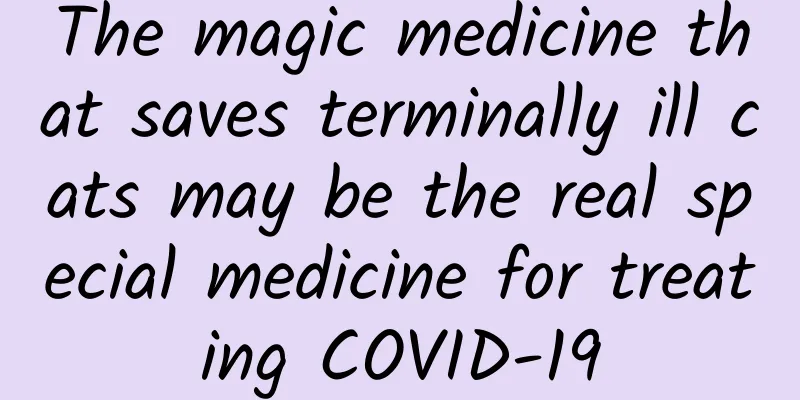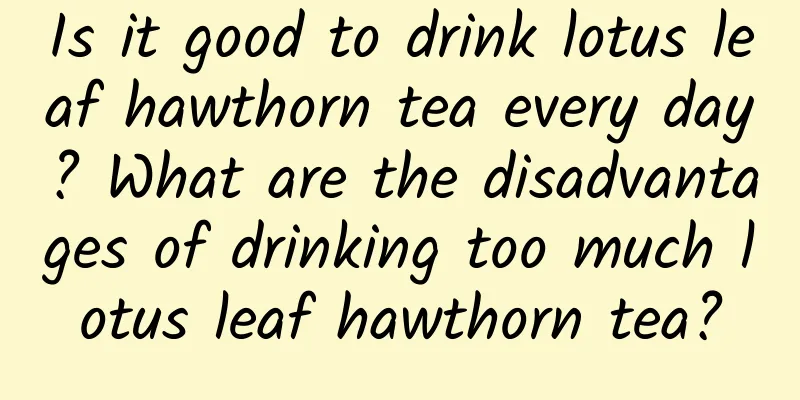The magic medicine that saves terminally ill cats may be the real special medicine for treating COVID-19

|
Gilead has a compound that is easier to synthesize and has been shown to be effective against coronavirus in animal models. It may even be more effective than remdesivir. Why not use it? Idobon, Xian Jie/Text There is a disease in the world that terrifies cat owners, Feline Infectious Peritonitis (FIP), or FIP for short. It is a disease caused by cats infected with feline coronavirus (FCOV), and almost everyone dies, and the death is very miserable. For decades, veterinarians were helpless against it, and there was no other way except to euthanize sick cats. Until 5 years ago, a hardcore cat lover named Niels Pedersen found a special medicine to treat FIP. Pedersen works at the University of California, Davis, and has been dealing with the mysterious terminal disease of feline infectious peritonitis since the 1960s. It is said that this old man has a bad temper and is difficult to communicate with on the phone, but he is tender when talking about cats, because he grew up on a poultry farm full of cats. After failing to develop a FIP vaccine, he thought of looking for antiviral drugs to treat FIP. He contacted his old acquaintance at Gilead, the former chief scientific officer, and got 25-30 screened drug molecules. After testing them one by one, he found that two drug molecules could prevent the FIP virus from replicating in cat cells, one code-named GS-441524 and the other code-named GS-5734. (GS-5734 is now a well-known and household drug. It is not mentioned here.) The two molecules are very similar, the only difference is that GS-5734 has an extra group that makes it easier for the drug molecule to enter cells (in fact, this effect was not shown in cat cells). Both are equally effective against the FIP virus, so Pedersen chose the simpler GS-441524 for the next clinical trial. He infected 10 cats with feline infectious peritonitis and injected them with GS-441524. As a result, all 10 cats miraculously recovered. "We were just shocked," Pedersen recalled. He couldn't believe the result, so he continued to find 31 cats with natural FIP for the experiment, and 25 of them recovered. Pedersen was very happy. He was 76 years old and had been studying FIP for 50 years. After searching for a long time, he finally found the ultimate antidote for FIP, and his career was about to reach its peak. However, this "peak" has not yet arrived in the way he expected. Gilead has refused to license GS-441524 for the treatment of feline infectious peritonitis. GS-441524 could not be marketed, and millions of cat lovers were extremely disappointed. Pedersen's hope of saving cats was dashed. Between 2018 and 2019, he reluctantly published his discovery as an academic research result. Pedersen has devoted his life to the study of feline infectious peritonitis. Source: UC Davis official website Cats know nothing about this. They continue to get sick and die miserably. In order to save the poor cats, cat lovers look for medicine everywhere, and some people are willing to spend a lot of money. Where there is demand, there is supply. GS-441524 has flowed into the private sector and circulated on the black market in Europe and the United States. As for the price, cat owners know it themselves. This puts veterinarians in a dilemma. They can neither prescribe the drug to cat owners nor legally purchase it for cat owners. Some veterinarians agree to help cat owners inject GS-441524 - after all, cats are in too much pain; some veterinarians wave their hands and do not want to be associated with unapproved illegal drugs. The worst thing is that the source of underground drugs is unknown and the quality is difficult to guarantee. Initially, the buyers posted online and the sellers contacted each other secretly. Later, someone set up an online organization called "FIT Warriors" so that buyers could communicate with each other and keep each other warm to prevent being deceived. They negotiated with the sellers and asked them to provide samples to test the drugs on stray cats with feline ascites. In January this year, they found that a brand that was quite popular in the past killed sick cats when testing the drugs. Then, the seller disappeared and owed some buyers money. There are rumors that the seller divorced his wife, and his wife was the core figure of the GS-441524 business. Without his wife, the seller's business could not survive, and his wife set up a new business and opened a new brand... It was like a western world. Cats are eager for medicine, and the lucrative market is there, so why is Gilead unwilling to put GS-441524 on the market? The secret lies in GS-5734. The drug molecule that Pedersen gave up had another name. You should have guessed it: the famous and well-known remdesivir, the people's hope. Remdesivir is the rising star of human antiviral drugs, and it was highly anticipated right from its birth. While Pedersen was working on two drug molecules on cat cells, Gilead was expecting Remdesivir to defeat the Ebola virus and pass the FDA's human drug approval. As we all know, Remdesivir's anti-Ebola efforts ended in vain, and it was not until the global COVID-19 outbreak in 2020 that it was dusted off and revered as a treasure - humans have suffered from COVID-19 for a long time, and there must be a beacon of hope to guide this difficult struggle. Although the clinical trials of remdesivir were not ideal (see "Contradictory conclusions of remdesivir research: Cao Bin said that different schemes cannot be compared") and were far from achieving the strong antiviral activity shown in preclinical models, the U.S. FDA still approved the emergency use authorization of remdesivir, and the Japanese Ministry of Health, Labor and Welfare also approved it for the treatment of COVID-19. The European Medicines Agency is stepping up its approval and may approve its sale in the next few days. However, remdesivir (GS-5734) and the miracle drug GS-441524 for feline infectious peritonitis are too similar after all. If GS-441524 has any adverse reactions in cats, we have to consider that remdesivir may cause the same problems in humans. Pedersen believes that the reason why Gilead is unwilling to authorize GS-441524 for the treatment of feline infectious peritonitis is that it is worried that clinical research on cats may hinder the approval process of remdesivir. After all, if there is a problem with the test results of cats, the company will have to add a lot of manpower and material resources to test whether human drugs will have similar problems. Gilead's practice is considered an industry standard-Richard Sachleben, a retired pharmaceutical industry researcher, revealed: "One of the rules in drug development is that if the results may be problematic, never conduct unnecessary tests." "It's devastating," Pedersen said. The demand for remdesivir has surged and mass production has begun. This is an antiviral nucleoside analog that can interfere with viral replication in the human host. However, the active compound that really prevents viral replication is "GS-441524 triphosphate", and remdesivir is only a prodrug. It has to be metabolized in the human body and undergoes 5 biological activation steps before it can become GS-441524 triphosphate to achieve the purpose of curbing viral replication. There is a clever phosphate modification in the molecular structure of remdesivir, which allows it to enter cells more easily. And its entire synthesis process requires 7 complex steps. This poses a great challenge to mass production. Gilead President Daniel O'Day praised his chemists: "Because this is a complex chemical process that requires many, many steps." However, in this time of fighting the epidemic where every second counts, is it really necessary to make things so complicated? Chemists at the University of Texas MD Anderson Cancer Center called out: Your company has a compound that is easier to synthesize and has been shown to be effective against the coronavirus in animal models. It may even be more effective than remdesivir. Why not use it? Yes, they are talking about GS-441524. GS-441524 can also be converted into GS-441524 triphosphate in the human body, and it can be completed in just three steps. More importantly, the synthesis of GS-441524 only requires three steps, which is much simpler than the synthesis of remdesivir. Victoria C. Yan and Florian L. Muller of MD Anderson Cancer Center wrote an article in STAT, suggesting several reasons why Gilead should focus on GS-441524: 1. Remdesivir did not achieve the expected “rapid activation”. The researchers initially believed that remdesivir would activate faster than GS-441524 in human cells infected with SARS and MERS. However, experimental data from primary human tracheal epithelial cells showed that there was no statistical difference in the potency of the two compounds [1], which is consistent with previous data from cat cells [2]. 2. Once entering the blood, remdesivir will be quickly converted into GS-441524. A recent study[3] used rhesus monkeys infected with the new coronavirus and found that after intravenous injection of remdesivir, the concentration of GS-441524 detected in serum samples was 1,000 times higher than that of remdesivir. Moreover, at the end of the experiment, only GS-441524 was detected in the lungs of the rhesus monkeys, and no remdesivir was detected. Even better, at this time, the monkeys no longer had symptoms of respiratory disease, the viral load was significantly reduced, and the damage to lung tissue was significantly alleviated, proving the efficacy of GS-441524. 3. GS-441524 is less toxic and safer. In studies using GS-441524 to treat feline coronavirus, high-dose administration showed excellent safety, with no signs of systemic toxicity observed over treatment periods of 12 to 30 weeks.[4] In primates, high blood concentrations of GS-441524 (1,000 times that of remdesivir) did not cause significant side effects. 4. GS-441524 is hope for patients with advanced and severe COVID-19. In previous clinical trials, remdesivir did not have a significant therapeutic effect on patients with advanced or severe COVID-19. This may be because the level of active GS-441524 triphosphate in the patients' lungs did not reach the ideal level and could not inhibit the replication of the virus. Lung viral loads in patients with advanced or severe COVID-19 are usually high, requiring high concentrations of GS-441524 triphosphate to combat the rapidly replicating virus. In previous clinical trials, remdesivir was not effective in treating patients with advanced or severe COVID-19, probably because the level of active GS-441524 triphosphate in the lungs of patients did not reach the ideal level. Compared with remdesivir, GS-441524 has a unique benefit. Because GS-441524 is less toxic, it is almost certain that its dosage can be much larger, so that more active GS-441524 triphosphate can be converted in the patient's lungs. Various preclinical and clinical trial data also strongly indicate that direct administration of GS-441524 in the early stage is simpler and potentially more effective than the use of remdesivir, especially since it can be safely administered in large doses. 5. GS-441524 is easier to synthesize, soluble in water, and has a fast production speed. 6. GS-441524 has a smaller molecular weight than remdesivir and is easy to make into aerosol preparations for inhalation therapy and preventive treatment. In addition, aerosol preparations are less toxic. … Seeing this, it is not difficult for us to conclude that GS-441524 is likely to be much more suitable than remdesivir for the development of a special drug for COVID-19. Combining the above reasons and looking at the experimental data, the molecule that ultimately reaches the patient's lungs is actually GS-441524. Perhaps Gilead should reconsider GS-441524, which is much easier to synthesize than remdesivir. Now, we can only hope that Gilead is not trying to protect its intellectual property. After all, the first patent for GS-441524 was issued in 2009, and the first patent for remdesivir was issued in 2017. References [1] Maria L. Agostini, Erica L. Andres, Amy C. Sims et al. Coronavirus Susceptibility to the Antiviral Remdesivir (GS-5734) Is Mediated by the Viral Polymerase and the Proofreading Exoribonuclease. mBio. 2018 Mar 6;9(2):e00221-18. [2] BG Murphy, M Perron, E Murakami et al. The Nucleoside Analog GS-441524 Strongly Inhibits Feline Infectious Peritonitis (FIP) Virus in Tissue Culture and Experimental Cat Infection Studies. Vet Microbiol. 2018 Jun;219:226-233. [3] Brandi N. Williamson, Friederike Feldmann, Benjamin Schwarz et al. Clinical benefit of remdesivir in rhesus macaques infected with SARS-CoV-2. BioRxiv. 2020. doi: https://doi.org/10.1101/2020.04.15.043166. [4] Niels C Pedersen, Michel Perron, Michael Bannasch et al. Efficacy and Safety of the Nucleoside Analog GS-441524 for Treatment of Cats With Naturally Occurring Feline Infectious Peritonitis. J Feline Med Surg. 2019 Apr;21(4):271-281. |
<<: What is the protein content of bean sprouts? Why do bean sprouts turn green?
Recommend
What are the reasons for the redness and swelling of the genitals?
When the itching symptoms of the genitals become ...
How to take care of cervical erosion
In recent years, the incidence of cervical erosio...
Will I feel body aches when I'm pregnant?
In the early stages of pregnancy, it is common fo...
Can gynecological diseases cause abdominal bloating?
There are many types of gynecological diseases am...
Precautions after iohexol contrast
Iohexol radiography is widely used in gynecology,...
The best contraceptive method is the safest and most effective
As society becomes more and more open, people'...
Where is the female vagina?
The vagina is a muscular tube composed of mucosa,...
Is it easier to digest steamed egg custard or boiled eggs? Why does steamed egg custard not solidify?
Eggs, also known as chicken eggs, are eggs laid b...
How long to rest after laparoscopic surgery for uterine fibroids
Laparoscopic surgery is a minimally invasive surg...
What is areola reduction surgery and what are the benefits?
Areola reduction surgery is becoming more and mor...
Girls stop growing taller
There should be no exact age or time point, just ...
What to do if your belly itches after a cesarean section
A cesarean section is very harmful to your body, ...









